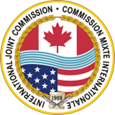Eleven organizations and individuals have been recognized with Essex Region Conservation Awards for their efforts in making the Windsor/Essex/Pelee Island region the Place for Life.
“Tonight marks the 25th anniversary of honouring those who have made tangible contributions to our regional environment,” said newly-elected Chair Rick Fryer. “It is rewarding to learn about all of the strides being made by so many to sustain our region as the Place for Life.”
Irene Moore Davis – John R. Park Homestead Award for her preservation of black history in our community.
J. Brush Farms Ltd. – Conservation Farm Award for the use of conservation farming practices to protect soil health and water quality.
Henry Denotter – Education Award for educating agricultural and non-agricultural landowners alike about sustainable farming practices.
Tom Henderson – Volunteer Award for more than 25 years of volunteering to improve the Little River and Detroit River watersheds.
Robert Pula & Andrew Pula – Volunteer Award for their continued efforts to connect people to nature and inspiring healthy and active living in the Place for Life.
Union Gas Ltd. – Volunteer Organization Award for more than two decades of staff volunteerism in supporting environmental initiatives in the Essex Region and beyond.
Carrie Lee – Active in the Place for Life Achievement Award is a newly introduced recognition that celebrates an individual who has demonstrated dedication and participation in Essex Region Conservation’s roster of active events.
Caldwell First Nation – Environmental Achievement Award for their ongoing protection of the Hillman Marsh, restoration of Sturgeon Creek, and education of students and others about our responsibility to protect water and the environment.
Town of Essex – Robert Pulleyblank Award for Municipal Environmental Achievement recognizes their leadership in trail development, low impact design, and efforts to reduce flooding and protect water sources.
Candice Kondratowicz – Dennis Chase Staff Award for her dedication, conscientiousness, kindness and compassion.
ERCA also reviewed the accomplishments of the past year, including launching a new strategic plan and visual identity, construction of the Cypher Systems Group Greenway, implementation of 88 water quality improvement projects, and the review of over 980 permit applications.
A full copy of ERCA’s Annual Report and corresponding video, as well as the Conservation Award Winners, can be found at www.erca.org/agm.

